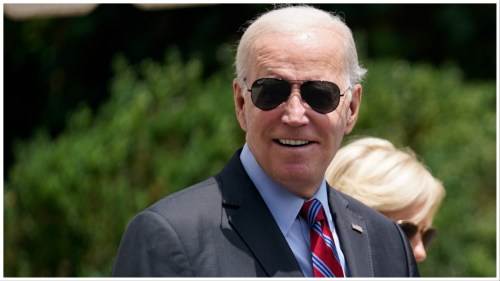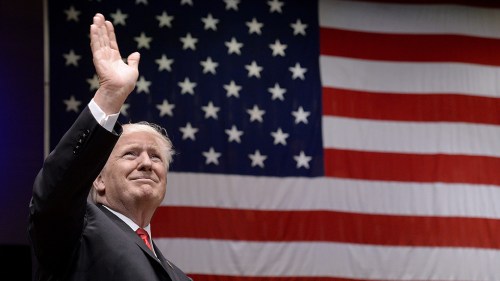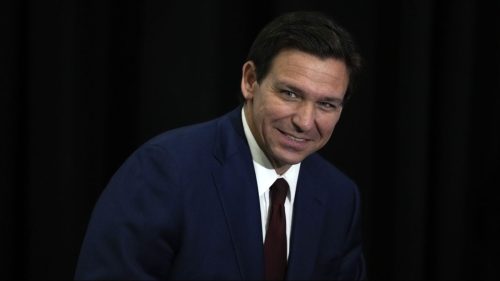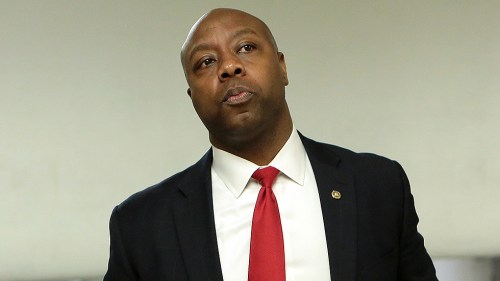Judge rules Trump ‘incited’ Jan. 6 riots, but can remain on Colorado primary ballot

A Colorado judge has rejected an attempt to bar former President Trump from the state’s primary ballot over 14th Amendment claims, according to court documents filed Friday.
District Judge Sarah Wallace agreed with plaintiffs that Trump “incited” the Jan. 6, 2021, riots on the Capitol and could be disqualified using the 14th Amendment, but that the law’s wording means it does not apply specifically to the office of president.
The activist group Citizens for Responsibility and Ethics in Washington (CREW), four Republicans and two independent Colorado voters filed a suit in September pushing for Trump’s removal.
The lawsuit claims the former president’s actions related to the insurrection were in violation of the amendment, which stipulates that those who engage in acts of insurrection are no longer eligible to run for elected offices.
The plaintiffs argued Trump “incited a violent mob” in an attempt “to stop the peaceful transfer of power under our Constitution.”
The trial in the case centered on two factors: whether Trump’s actions as president qualified as engaging in acts of insurrection per the 14th Amendment clause, and if the presidency counts as an “office” in the meaning of the text, making it eligible for disqualification.
Trump ‘incited’ Jan. 6 riots
For the first factor, plaintiffs called on both academic witnesses to argue that Trump was responsible for the Jan. 6 riots, and victims of violence including Capitol Police officers and Rep. Eric Swalwell (D-Calif.).
Attorneys for Trump argued that the former president had nothing to do with the attacks, and that his speeches — which appeared to encourage violence — were also protected by the First Amendment.
But Wallace agreed with the plaintiffs, the first time a court has ruled that Trump was responsible for the violence of Jan. 6.
“The Court concludes, based on its findings of fact and the applicable law detailed above, that Trump incited an insurrection on January 6, 2021 and therefore ‘engaged’ in insurrection within the meaning of Section Three of the Fourteenth Amendment,” Wallace wrote.
She cited Trump’s “history of courting extremists and endorsing political violence as legitimate and proper,” as well as his consistent efforts to “undermine the legitimacy” and “hinder the certification” of 2020 election results.
“Trump has consistently endorsed violence and intimidation as not only legitimate means of political expression, but as necessary, even virtuous,” Wallace wrote in the ruling. “Further, the Court has found that Trump was aware that his supporters were willing to engage in political violence and that they would respond to his calls for them to do so.”
The judge also ruled that the House Jan. 6 panel’s report could be used as evidence, to the protest of Trump’s attorneys.
“In addition to his consistent endorsement of political violence, Trump undertook efforts to undermine the legitimacy of the 2020 presidential election well in advance of the election, making accusations of widespread corruption, voter fraud, and election rigging,” she continued.
“These efforts intensified when the election results were returned showing that he had lost the election, despite a complete lack of evidence showing any such fraud and his knowledge that there was no evidence,” Wallace added.
Specifically, Wallace focused on Trump’s actions in the days before the insurrection and during the riots. She noted that senior staff and law enforcement warned Trump that there could be violence on Jan. 6.
“Despite these warnings, Trump undertook no effort to prepare law enforcement or discourage violence among the prospective attendees,” she said. “Importantly, he did not tell law enforcement he intended to direct the crowd to protest at the Capitol.”
Through his Jan. 6 speech at the Ellipse, Trump instructed supporters to march on the Capitol Building using inflammatory language he knew would cause violence, Wallace wrote.
“The Court concludes that Trump acted with the specific intent to incite political violence and direct it at the Capitol with the purpose of disrupting the electoral certification,” she said.
Qualifications of 14th Amendment
On the second factor — whether the 14th Amendment applies to the presidency — plaintiffs argued for a broad interpretation of “office,” relying on a catch-all clause at the end of the text. They said that the presidency was understood at the time to mean an “office” in a general sense, even though it was not explicitly listed in the text of the amendment.
But Trump’s attorneys countered that if the authors of the 14th Amendment wanted it to apply to the presidency, they would have specified.
Wallace agreed with the argument about the less-broad definition of “office.”
“The Court holds there is scant direct evidence regarding whether the Presidency is one of the positions subject to disqualification,” Wallace wrote. “The Court holds that it is unpersuaded that the drafters intended to include the highest office in the Country in the catchall phrase “office . . . under the United States.’”
An earlier draft of the 14th Amendment included the presidency and vice presidency explicitly in the list of disqualified offices, but it was later removed. Trump’s attorneys argued that the authors’ intent was clear with the omission.
Due to the wording of the amendment, Trump can remain on the primary ballot for president in Colorado despite violating the insurrection clause, Wallace ruled.
In theory, Wallace’s ruling would, however, enable Trump to be disqualified from the ballot if he were to run for any lower office in Colorado.
The former president’s legal team deemed the Colorado suit comparable to “election interference” in the 2024 race.
Despite the outcome, CREW celebrated the ruling for determining Trump incited the insurrection.
“The court’s decision affirms what our clients alleged in this lawsuit: that Donald Trump engaged in insurrection based on his role in January 6th,” CREW President Noah Bookbinder said in a statement. “We are proud to have brought this historic case and know we are right on the facts and right on the law.”
The group pledged to file an appeal.
The Colorado case is among three major attempts to kick Trump off of the ballot in states around the country.
In Minnesota, the state Supreme Court threw out a similar argument, saying the Secretary of State lacked authority to bar Trump from the ballot.
In Michigan this week, a lower court did the same, instead arguing that the 14th Amendment doesn’t apply to primary elections. The Michigan case has been appealed to the state Supreme Court.
The Hill’s Sarah Polus contributed to this report.
Updated 9:30 p.m.
Copyright 2023 Nexstar Media Inc. All rights reserved. This material may not be published, broadcast, rewritten, or redistributed. Regular the hill posts












